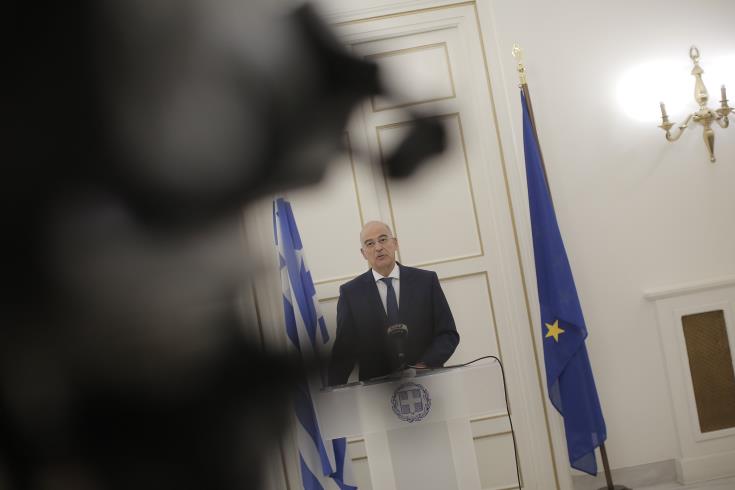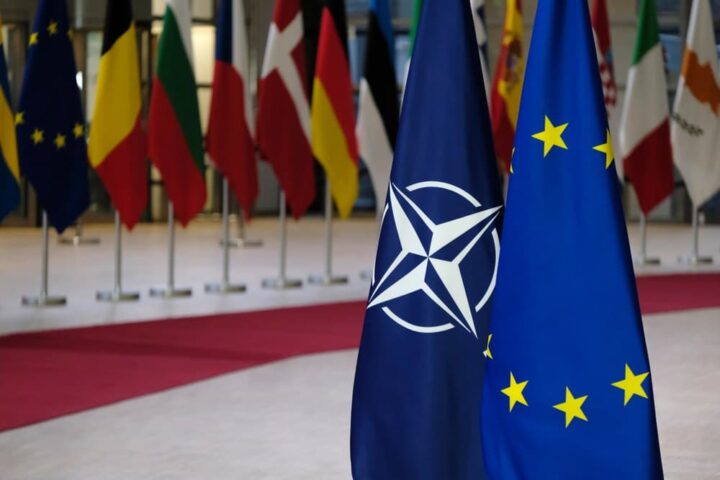Through its actions, Turkey is turning into a destabilizing factor for the region and undermines NATO cohesion at a crucial time, Greek Foreign Minister Nikos Dendias told NATO Secretary-General Jens Stoltenberg.
The two men spoke over the phone on Thursday, ahead of a meeting of the Alliance’s Foreign Ministers, early next month.
According to Greek diplomatic sources, Dendias briefed his interlocutor on Turkish provocative and unlawful behaviour in the Eastern Mediterranean and the region.
“Turkish actions run contrary to NATO’s founding principles, inter alia the rule of law and respect for human rights,” Dendias said.
According to the same sources, Stoltenberg spoke about a report of a group of experts, drafted in the framework of the “NATO 2030” reflection process.
The report says that respect for the organisation’s founding principles by all member states and avoiding using the Alliance for political gains are deemed to be paramount for NATO’s unity and cohesion.
Athens also notes that Turkey has been using its veto right to “punish” countries with which it has bilateral disputes, and is thus constantly causing problems in the proper functioning of the organization.
Speaking after a briefing of parliamentary party representatives, in Athens, Dendias said that Greece remains committed to the idea of holding a constructive dialogue based on international law and the Law of the Sea.
“For this dialogue to take place, however, Turkey will have to prove its respect for international law and do so in the long run and not opportunistically ahead of the forthcoming European Council meeting.”
During the briefing, Dendias informed Greek political parties about two documents signed by the Greek PM Kyriakos Mitsotakis, with the United Arab Emirates (UAE), during a recent visit to Abu Dhabi.
A bilateral agreement on Joint Foreign Policy and Defence Cooperation and the Joint Declaration on the development of a Strategic Partnership between Greece and the UAE.
The agreement contains an “innovative” mutual defence clause, the Greek Foreign Minister said, calling it a “major diplomatic success.”
This agreement also enhances the framework for further deepening Athens’ relations with other countries in the region, such as Saudi Arabia, Israel, Egypt and Jordan, Dendias said. (source CNA)










